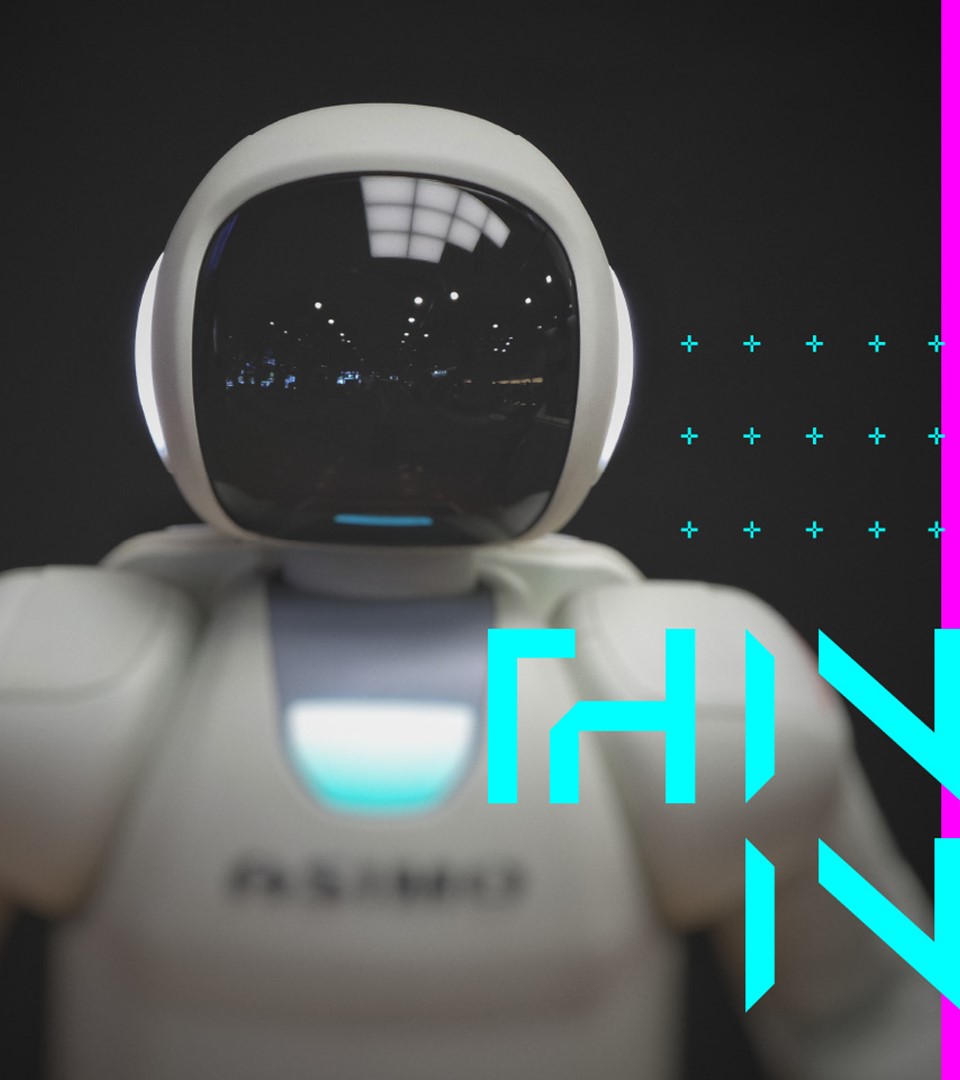AI and our Future in a Digital Landscape
Artificial Intelligence (AI) is advancing at a rapid pace, and it's changing the way we approach web design, development, and marketing. With the help of AI, businesses can now create websites and marketing campaigns that are more personalised, efficient, and effective than ever before.
…Heck, AI can even write an intro about itself for a blog 😉
BALANCING BOT AND BEING
There is a place for AI but we need to find a balance.
AI has taken the world by storm - although it’s been a part of marketers everyday lives for a long time now. Thanks to data-driven analysis tools and other predictive measures, we are now more aware of it than ever. Accessible AI tools are taking research and strategy to new heights, and will continue to scale.
Artificial Intelligence, such as ChatGPT, can answer the more complex questions that Google can’t. And often in a matter of seconds. Midjourney, launched in 2022, allows users to generate images from descriptive prompts. Tools like this hit the news and had us all questioning the authenticity of what we were seeing and reading.
It depends on how you look at and utilise the situation. AI can both act as a supporting relief for repetitive tasks, but if relied on entirely can step on the toes of creatives and coders. Furthermore, it can only curate content from existing data so the element of original thought is removed. Finding a suitable balance between creation and data collection is vital.
The artificial eye has the technical skill but not the human insight to understand if content is enjoyable, or truly easy to read. Unless you are paying for a high level subscription, there is room for factual error, so the solution doesn’t remove the need to proof-read and amend content.
PREDICTION VS. PERSONALITY
Especially for those that are using AI as a jumping off point, this can be helpful as long as you are putting your own spin on things.
Personality lacks where AI gains, we have the statistics and the detail, but marketing is so much more than that. We need to foster interest through entertaining, engaging AND evidenced content that is relevant to the user.
Much like the 2000s have seen constant reference and sampling of previous music, art and fashion trends. The same applies to ideas. We can use tried and true communication styles, but take into account the needs of the modern user. Consumers will always want something different to what they’ve had before.
As a marketing agency, we love to ask - what works? But also, why? And how can this be transformed into something unique?
AI helps to detect trends and patterns in activity that humans can’t pick up, however many consumers are looking for the personality behind the messaging. We must show that someone understands and wants to help to solve your needs. According to Salesforce, personalisation has increased revenue for businesses by 40% in the last year. 52% of customers expect companies to understand their needs entirely.
Artificial Intelligence opens up the ability to facilitate data that is unavailable, enhancing customer understanding and psychological processing of content. It both shares deep insights backed with data, and enables the AI user to improve their capacity to create.
AI AND AGENCIES
The role that AI can play in the agency landscape is huge. It has introduced new exercises to analyse and understand the way users engage with content. Heat mapping tools such as Neurons and HotJar provide detailed and trackable insights into the ways in which your content is viewed. By using user testing and research tools, they can predict engagement across creative marketing channels.
With the introduction of GA4 in July, we have seen an active increase in the way AI is incorporated into data collection and processing. The dashboard now includes data-driven tools such as customer behaviour tracking, predictive audiences, and the introduction of conversion modelling to fill gaps in data.
The integration of these tools together enhance the user experience also. For example, combining search console data, analytics and keyword advertising to optimise geotargeting and bid placement.
The more you know about your customers the better. From existing audiences, to predictive data - the quality of the data AI can generate is growing. You can go from generating customer personas to predicting real time customer behaviour.
THE FUTURE OF ARTIFICIAL INTELLIGENCE
And who knows what’s next. In the future, the role of AI is certain to change and enhance operations more and more. It may no longer fill gaps, but manage processes entirely, such as data reporting and customer service. We are seeing this only beginning now. 🤖
With tech giants like Geoffrey Hinton moving away from AI, we can see that the advancements are predicted to be for better and for worse. The ways in which we learn, how operations are managed and how marketing revolves around the human psyche are set to change forever.
AI AND US
We're not going to start getting AI to do our work for us. It is important to consider the ethics of using these tools.
As impressive as this shift is, we do not support the replacement of artists’ work with AI art. The skill of artists cannot and should not be replicated - the value of Artificial Intelligence is in analysis, not the shadowing of creatives.
The future of predictive analytics lies in both the use of AI to complete repetitive tasks, whilst balancing this with our unique understanding of the market that AI can’t vocalise. Combining strategy and data to adhere to continual best practices.
AI allows agencies like us to provide better value to clients by streamlining workloads and providing quicker data-driven insights to deliver better performing work.
By creating a balance between human thinking and data-driven technologies, the enhancement of our analytical capabilities is constantly developing.

